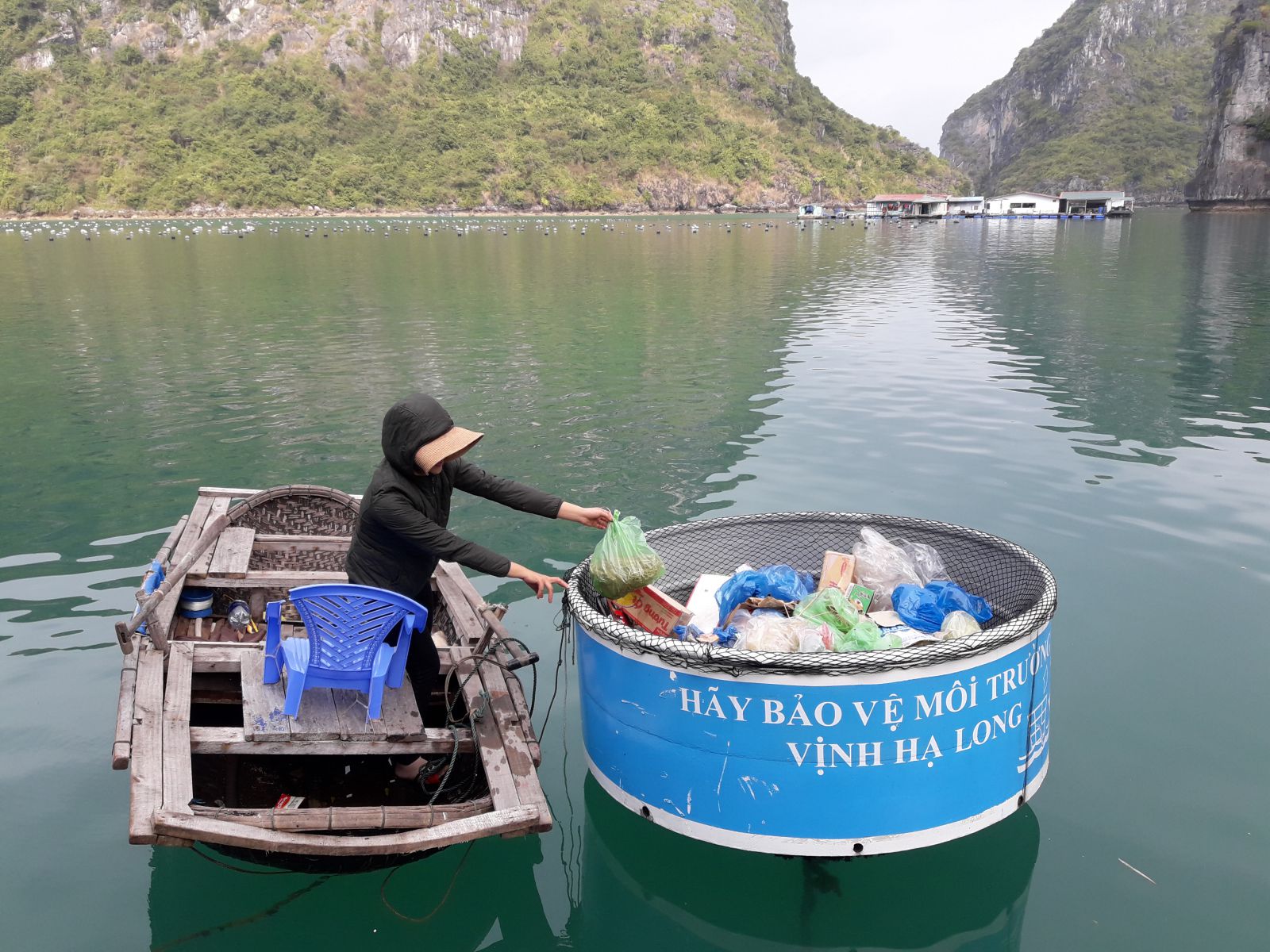Ha Long Bay to ban disposable plastic items from next month
Wednesday, 21/08/2019 17:35 (GMT+7)
Aiming to protect the environment, from September 1st, tourism services on Ha Long bay, the northern province of Quang Ninh, will “say no” to plastic bags and disposable plastic items.

Local people throwing waste on a floating dustbin on Ha Long bay
Accordingly, business units will use paper, glass and biological materials that are environmentally friendly and easy to decompose. This move aims to contribute to minimizing the negative impact of plastic waste on the landscape and environment of Ha Long bay, helping provide more green services.
The Ha Long bay management board has contracted with two businesses to collect garbage on the bay with nearly 30 ships of farmers picking up tons of waste, including many plastics being bottles and nylon bags.
Pham Dinh Huynh, Standing Vice Chairman of the Ha Long bay Management Board, Ha Long greets 12,000 tourists a day along with about 12,000 plastic bottles or straws. If only 10% of the tourists buy goods, there will be 1,000 nylon bags of all kinds. These create a gigantic amount of plastic waste for the bay.”
The management board is also speeding up popularization and recommendations of restricting the use of plastic bottles and bags when visiting the bay.
Businesses on the bay actively bought paper drinking cups, paper straws and paper bags to serve tourists.
At wharves, tourists will be advised by the staff, the management board and boat owners not to use plastic bottles or disposable plastic items.
Vietnam is one of Asia’s five worst polluters of ocean plastic waste, according to international organization. With 13 million tons of waste released to the ocean every year, the country ranks 17th in the world for ocean plastic waste pollution
By 2030, Vietnam will manage to have 100% of coastal tourism sites and service facilities not using single-use plastic products and plastic bags, and 100% of marine reserves not having plastic waste/.
Tags: